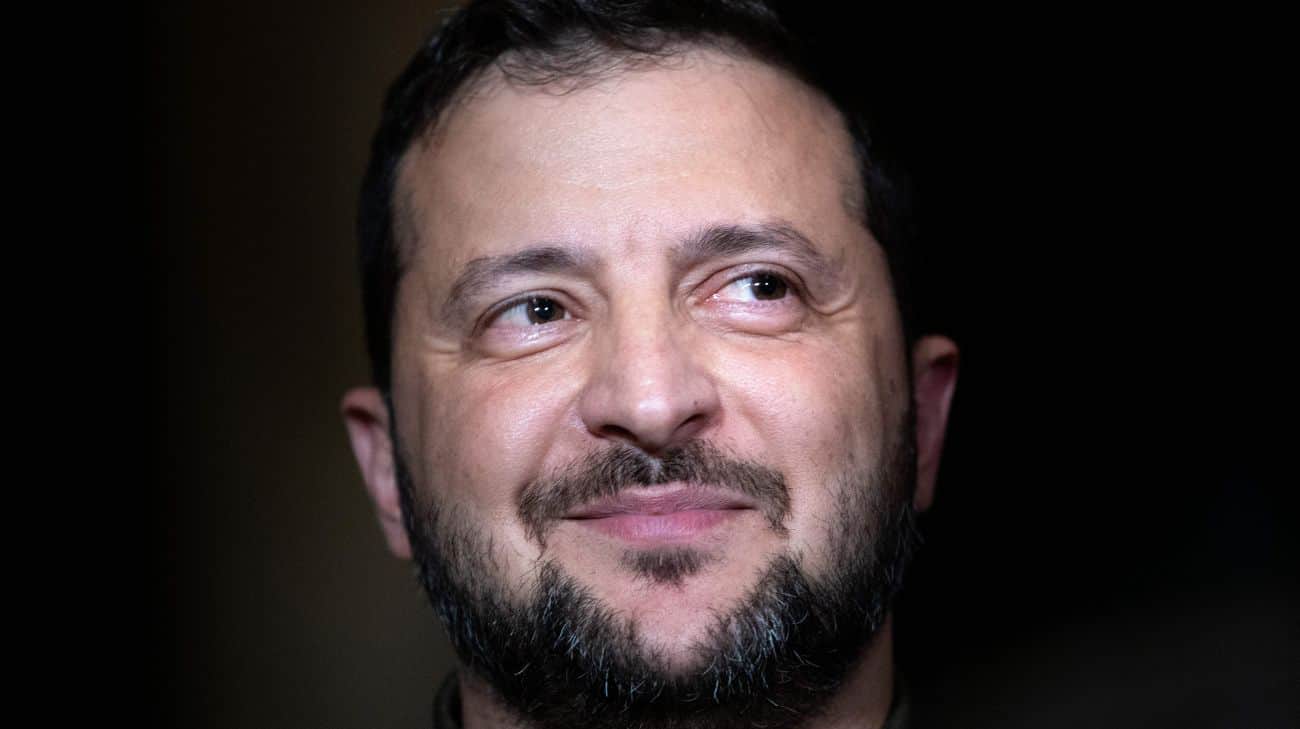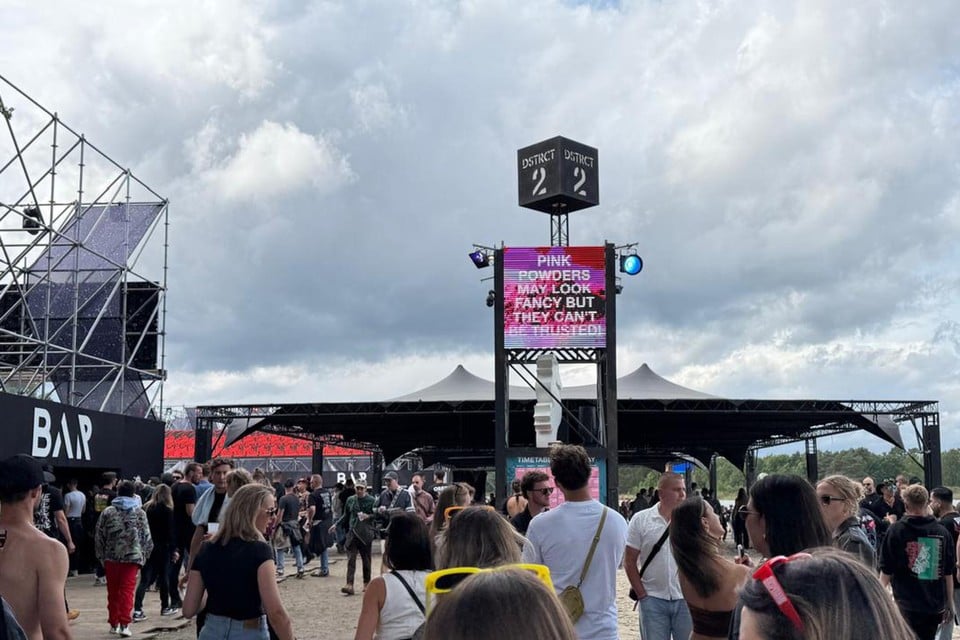Zeeland must grow, according to drivers. ‘Terneuzen can become a suburb of the Belgian Randstad’
:format(jpeg):fill(f8f8f8,true)/s3/static.nrc.nl/images/gn4/data131197480-fcbf18.png|https://images.nrc.nl/TsKbGmswrPN07awFQa2M9Wd88bQ=/1920x/filters:no_upscale():format(jpeg):fill(f8f8f8,true)/s3/static.nrc.nl/images/gn4/data131197480-fcbf18.png|https://images.nrc.nl/o9WEbcUHeRmjfTdqQSOvioAHd4w=/5760x/filters:no_upscale():format(jpeg):fill(f8f8f8,true)/s3/static.nrc.nl/images/gn4/data131197480-fcbf18.png)
Hugo de Jonge, acting commissioner of the King in Zeeland, was in January on an elevation in the Protestant Nieuwe Kerk of Middelburg. It was Friday evening and in the first rows were older Zeelanders in Sunday gestation: the men stabbed in black, including hat, the women adorned with white veils and hats from Kant.
Let’s pretend it’s 2050, said the young. And in the New Year’s speech he sketched a vision of the future of Zeeland as « one of the economic engines of the Netherlands ». As « the gateway » about water between the ports of Rotterdam and Paris, a province where it is better to live than in the rest of the country. A contrast with the present, where care, education and transport in Zeeland have been under pressure for years.
That is precisely why Zeeland must grow, the young – speaking on behalf of the provincial government. The four large Zeeland cities of Middelburg, Vlissingen, Terneuzen and Goes could each have at least one hundred thousand inhabitants in 25 years, he philosophized. That comes down to certainly a doubling for every city. In that scenario, Zeeland, with just under four hundred thousand inhabitants, would now have at least six hundred thousand inhabitants the sparsely populated province of the Netherlands.
Do you want to become the rustic French countryside, on the periphery of the Netherlands? Or do we accept more tourism and new residents?
That prognosis loosened a lot in Zeeland. Residents started a petition – « Stop the madness of Hugo de Jonge » – and complained In regional media About the loss of peace and space if Zeeland would grow.
The story of De Jonge can count on support from three Zeeland aldermen who NRC spoke. « We have been making his analysis in the province for some time, » says Rutger Schonis, alderman of Middelburg (D66, Spatial Planning). « But the speech has been received as intended: as a stone in the pond. » According to Schonis, the province must choose: « Do you want to become the rustic French countryside, at the periphery of the Netherlands? Or do we accept more tourism and new residents, so that the level of facilities remains? »
‘Small bowl’
Zeeland grows with a few tens of thousands of inhabitants until 2030, the province estimated three years ago. A year later, Zeeland governments made agreements with then Minister De Jonge about housing in the same period, says the alderman. That went at 16,500 pieces in the province, of which more than two thousand in Middelburg. « The figures in the new plans are a multiple of that, » says Schonis. « Growing to one hundred thousand is a doubling for Middelburg (50,214 inhabitants). »
According to Schonis, the municipality must « go up » mainly in the tourist city center. Middelburg has « almost grown against Vlissingen », there is little room. According to the alderman, building in the outlying area is unwise. The Walcheren peninsula, on which the capital is Middelburg, is « a small bowl » with pool grounds where water flows to rainfall and that makes housing almost impossible. According to Schonis, Middelburg needs more inhabitants, so that the municipality feels sure of maintaining the railway connection and can invest in a more cultural offer for a more diverse audience.
Growing to one hundred thousand is a doubling of the number of inhabitants for Middelburg
The province’s proposal is that Middelburg will be one of the four medium -sized Zeeland ‘network cities’ – with Vlissingen, Goes and Terneuzen – who together compete together with other large cities in the Netherlands. According to the Terneuze Alderman Frank van Hulle (Top/Gemeentebelangen, Housing), the latter city will never become a city of one hundred thousand. » At the same time, he wants to get rid of « calimero behavior » in Zeeuws-Vlaanderen and ambition. The region is aiming for a growth from 100,000 to 125,000 inhabitants, says Van Hulle. The many Eastern European labor migrants in Terneuzen must also want to stay, says Van Hulle. Now the city is more ‘a pigeon’, where employees fly in and out.
That growth needs time, the alderman explains. Until recently, Zeeuws-Vlaanderen was known as a shrinking region, he emphasizes. « Newspapers sent photographer Stephan Vanfleteren (known for his black and white photos) for years. Preferably in dark weather and to streets with impoverished buildings. That image, that image, we must turn. All the policy was based on that we were a shrinking region. All multi-year plans of housing corporations are focused on demolition and limited demonstrations.”
Read also
Driving buses in Zeeland remains complicated. ‘Whatever party it will be, the plans are a drama for the traveler’
Ghent
Growth in the region can mean that the ZorgSaam Hospital in Terneuzen is hoped, Van Hulle hopes. ZorgSaam now wants to collaborate with the Admiraal de Ruyter Hospital in Goes, located on South Beveland, to maintain care. Local politicians and citizens fear that Zeeuws-Vlaanderen will no longer have a fully-fledged hospital. They don’t want to go across.
Van Hulle wants to connect to the outside world to grow. The port of Terneuzen is already working with that of Vlissingen and Ghent. The municipality believes that the latter city must also come. « Ghent is looking for space. We can offer them. » Antwerp and Bruges are also relatively close. « We can become the suburbs (suburbs) of the Belgian Randstad, » says Van Hulle.
In addition to Terneuzen, the municipality has twelve places. Although according to Van Hulle in every village « a street has to be added », he also wants to keep « the beautiful life ». « There is also more import there, they really came here before peace and space. They have a little more difficulty with our growth ambition. »
/s3/static.nrc.nl/images/gn4/stripped/data131048189-40810d.jpg|https://images.nrc.nl/OVptm7X48PjFY4Gtub8BLIbwONA=/1920x/filters:no_upscale()/s3/static.nrc.nl/images/gn4/stripped/data131048189-40810d.jpg|https://images.nrc.nl/oNUTbmidtpSrE1H-E7MLT8ix4xs=/5760x/filters:no_upscale()/s3/static.nrc.nl/images/gn4/stripped/data131048189-40810d.jpg)
Rene van den Berg / ANP / HH
Bolus
The fastest-growing municipality in Zeeland is Noord-Beveland, also the second-to-have. For a decade, newcomers have been welcomed annually by the municipality with a farmers’ breakfast, on a farm at the foot of the Zeeland Bridge that connects the island with the north. Every year more eggs with bacon and Zeeland boluses are served to newcomers from the Randstad, sees alderman Yvonne Maas (Noord-Bevelands Belang, Spatial Planning).
Those newcomers keep supermarkets, butcher shops and sports clubs in the villages. Enough residents means existence for the only regular bus line, which runs across the island, for the neighborhood bus to remote villages. The three general practices on the island are under pressure and are planning to continue in one place together. Residents have to go to large cities for other facilities. « I’m not going to build a cinema here, » says Maas. « That makes no sense. »
According to the alderman, Terneuzen is now more ‘a pigeon ride’ where employees fly in and out
The popularity of Noord-Beveland also has disadvantages. House prices are rising, says Maas. According to the Zeeland Woondeal, two thirds of the owner -occupied homes in the province must fall under the national affordability limit of 405,000 euros. « In Zeeland, that is still not affordable, certainly not for our young people, who want to stay, » says Maas.
To grow further, Zeeland needs a substantial contribution from The Hague, according to the aldermen. This year, the Spatial Planning Memorandum must appear, in which the government gives a pass for the spatial planning of the Netherlands in the long term. The New Year’s speech of De Jonge came at the right time, says Alderman Schonis van Middelburg: « I understand the timing of Hugo very well. We put our hand on. »
Read also
Zeeland finally finds new company that wants to ride buses

:format(webp)/s3/static.nrc.nl/wp-content/uploads/2024/12/19165245/web-1812BIN_ovzeeland1.jpg)
:format(webp)/s3/static.nrc.nl/wp-content/uploads/2025/03/19102056/web-1903ECOBLOGebs.jpg)
/s3/static.nrc.nl/images/gn4/data133354271-8dc659.jpg)
:format(webp)/s3/static.nrc.nl/wp-content/uploads/2024/09/04085506/data120975205-8f5e99.jpg)
/s3/static.nrc.nl/images/gn4/data133355903-5bc084.jpg)




